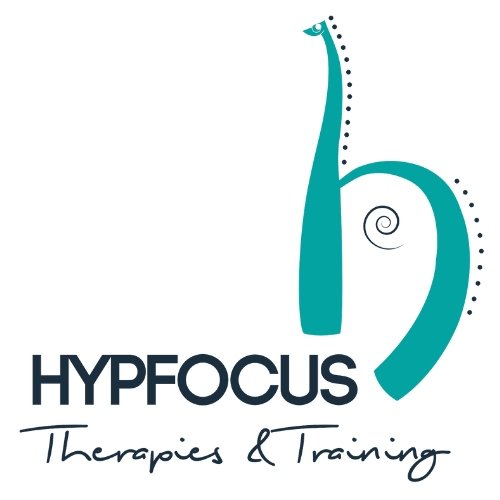Understanding Psychological Injury, Psychosocial Hazards, and How Hypnotherapy Can Help Recovery
Psychological injury, also referred to as mental injury, is a significant disruption to an individual's mental health caused by traumatic or distressing events. These injuries can profoundly affect a person's ability to function and enjoy life. Increasingly, we're recognising the role of workplace factors in contributing to these injuries. In this blog, we’ll explore what psychological injury entails, the role of psychosocial hazards, how the Victorian government is addressing these hazards, and how hypnotherapy can support recovery.
What is Psychological Injury?
Psychological injury refers to the mental harm or dysfunction resulting from a traumatic event or prolonged stress. Unlike physical injuries, psychological injuries impact the mind and emotional well-being. They may manifest as conditions such as:
Depression
Adjustment disorders
These injuries often interfere with daily functioning, relationships, and work performance. Symptoms can include intrusive thoughts, emotional numbness, mood swings, sleep disturbances, and difficulty concentrating.
The Role of Psychosocial Hazards
Psychosocial hazards are aspects of the work environment and how work is organised that can cause psychological or physical harm. These hazards are now being recognised as significant contributors to psychological injuries in the workplace. Examples of psychosocial hazards include:
High Job Demands: Excessive workload, tight deadlines, and unrealistic expectations.
Low Job Control: Lack of autonomy or influence over how work is done.
Poor Support: Inadequate support from supervisors or colleagues.
Bullying and Harassment: Unacceptable behaviors that create a hostile work environment.
Lack of Recognition: Feeling undervalued or unappreciated for one's contributions.
Poor Workplace Relationships: Conflict or tension among colleagues.
Poor Organisational Change Management: Lack of consultation during introducing workplace changes.
Victorian Government Initiatives to Combat Psychosocial Hazards
The Victorian government is introducing new regulations to proactively address psychosocial hazards in the workplace. These changes aim to prevent psychological injuries before they occur rather than just reacting to them after the fact. Key aspects of these initiatives likely include:
Duty to Manage Psychosocial Risks: Employers must legally identify and manage psychosocial risks in their workplaces.
Risk Assessment Requirements: Employers must conduct thorough risk assessments to identify potential psychosocial hazards.
Preventative Measures: Employers must implement preventative measures to eliminate or minimise identified risks. These may include changes to work processes, improved training, and better support systems.
Consultation with Workers: Employers must consult with workers about potential psychosocial hazards and the measures to address them.
Enforcement and Compliance: WorkSafe Victoria will likely enforce these new regulations, ensuring that employers take their responsibilities seriously.
How Does Psychological Injury Occur?
Psychological injuries can arise from various situations, including:
Traumatic Events: Experiences like assault, accidents, natural disasters, or combat exposure can lead to PTSD or other trauma-related conditions.
Workplace Factors: Bullying, harassment, job insecurity, excessive workload, or exposure to psychosocial hazards are common causes of workplace-related psychological injuries.
Chronic Stress: Prolonged exposure to stressors such as caregiving responsibilities or financial difficulties can also contribute.
Secondary Psychological Injuries: Sometimes mental injuries develop as a result of physical injuries. For example, chronic pain or physical disability may lead to depression or anxiety.
The impact of these events varies depending on individual resilience, past experiences, and access to support systems.
How Hypnotherapy Can Help with Recovery
Hypnotherapy is a practical therapeutic approach for addressing trauma and psychological injuries, including those stemming from workplace psychosocial hazards. It guides individuals into a deeply relaxed state where the subconscious mind becomes more accessible. Here’s how hypnotherapy can assist recovery:
1. Accessing the Subconscious Mind
Trauma and the effects of prolonged stress often reside in the subconscious mind, influencing thoughts and behaviours in ways that may not be fully understood. Hypnotherapy allows individuals to access these more profound layers of the psyche for processing and healing.
2. Reframing Traumatic Experiences
Through guided imagery and suggestion techniques, hypnotherapy helps individuals reframe their perception of traumatic events, including negative workplace experiences. This reduces the emotional intensity of these memories and fosters a healthier perspective.
3. Reducing Stress and Anxiety
The relaxation techniques in hypnotherapy help lower stress levels and calm the nervous system. This creates a safe environment for individuals to confront their trauma without feeling overwhelmed.
4. Identifying Triggers
Hypnosis can uncover hidden triggers linked to trauma or workplace stress that might not be consciously recognised. Once identified, these triggers can be addressed effectively.
5. Empowerment and Emotional Regulation
Hypnotherapy empowers individuals by helping them regain control over their emotional responses to trauma triggers or workplace stressors. Techniques such as anchoring positive states enable clients to replace fear or anxiety with feelings of safety and confidence. Furthermore, it can help build resilience to cope with future work-related challenges.
Why Choose Hypnotherapy?
Hypnotherapy offers a gentle yet powerful way to heal psychological injuries by addressing their root causes rather than just managing symptoms. It complements other therapeutic approaches like counselling or cognitive-behavioural therapy (CBT) and is particularly effective for those who struggle with traditional talk therapy. It can be particularly beneficial in helping individuals process and cope with workplace-related stress and trauma.
Conclusion
Psychological injury, often exacerbated by workplace psychosocial hazards, can significantly impact one’s quality of life, but recovery is possible with the right support. The Victorian government's focus on addressing psychosocial hazards is a positive step forward in preventing these injuries. Hypnotherapy provides a unique pathway to healing by accessing the subconscious mind, reframing traumatic experiences, and fostering emotional resilience. If you’re dealing with the aftermath of trauma or stress-related conditions, especially those related to your work environment, consider exploring hypnotherapy as part of your recovery journey.
At Hypfocus Hypnotherapy in Melbourne, we specialize in helping clients overcome trauma and psychological challenges through personalised hypnotherapy sessions. Contact us today to take the first step toward healing!

